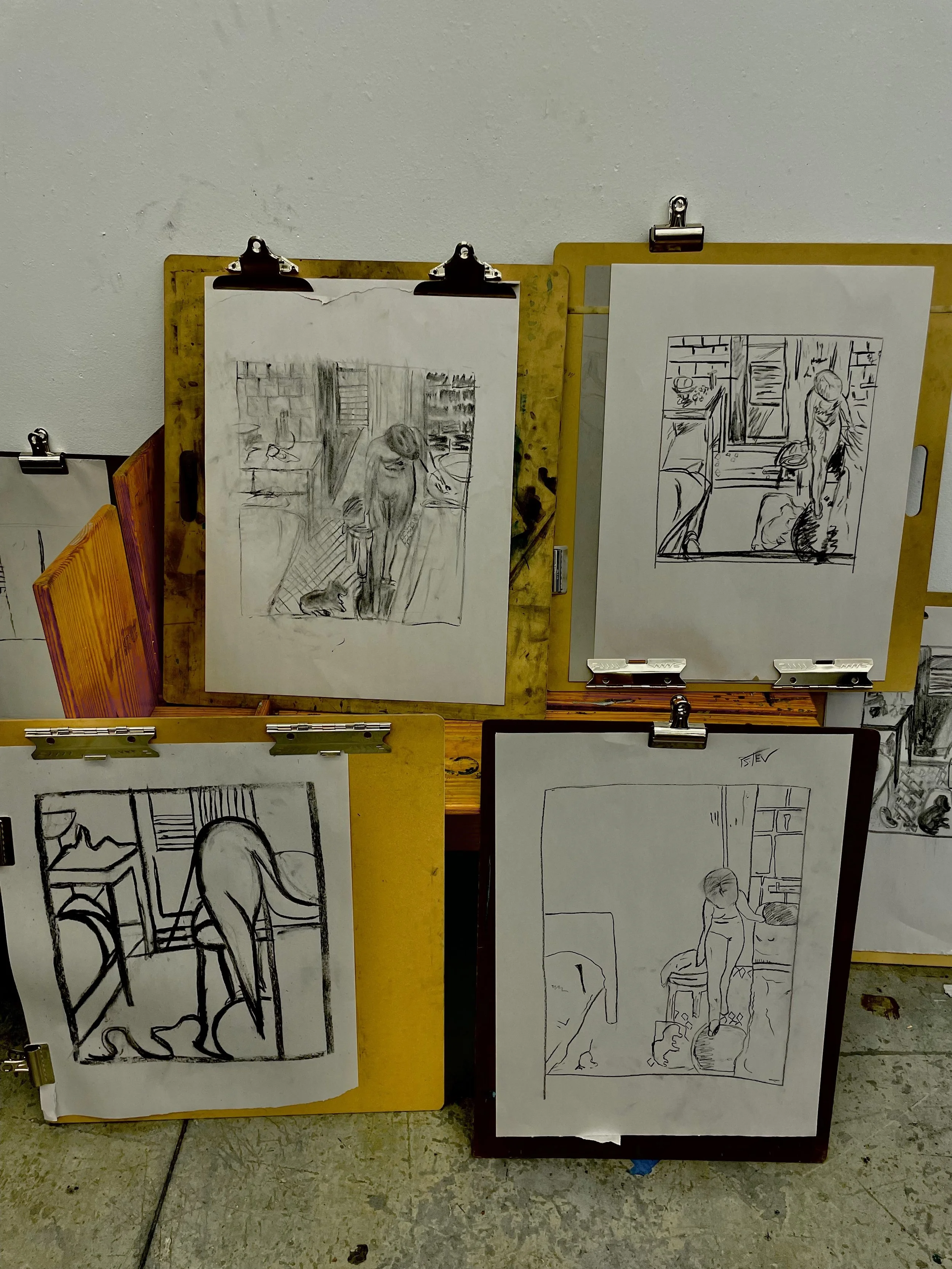Redefining Passion
photo by thomas brock
Redefining Passion
fourth year aviel sabbag
Maybe I’m a little late to the party on this one, but graduating and transitioning into a new phase of my life has me intensely reevaluating what I’m passionate about. I want to leave college with a strong sense of identity, and the best way I can think of doing that is identifying my passions. At the end of the day, who are we outside of our passions? Answering that abstract question in one article seems like a Herculean task for even the most seasoned writer, let alone someone with as little writing experience as I have. Maybe a good place to start is trying to define what passion really means. Passion is usually thought of as “something arousing enthusiasm,” a definition that leaves way too much up to interpretation, in my opinion. As with a lot of people, the nuances of passion have been corrupted with a lot of misconceptions that I’d like to clear up here — for the benefit of readers, definitely, but more so for myself.
As a kid, if you asked me what I was passionate about, the answer would change every few months. I was constantly finding new frivolous activities and hobbies to get myself entrenched in with no regard for how long I did them or what I got out of them. I simply followed my interests and yearned to become an expert in whatever I found to be cool or exciting. If something stopped being exciting, I phased it out of my life and moved on to the next place my hyperactive mind took me. From becoming a Yo-Yo master to learning to skateboard, these wide-ranging activities I pursued “aroused enthusiasm” in me for sure, but would I call any of them a passion of mine? Definitely not. What was missing from those stints of skill chasing that would have turned them into passion? The answer is simply time. To call something a passion, you have to be dedicated, and the only way to prove dedication is over a long period of time. There’s not a specific quota of hours you need to dedicate to turn something from an interest to a passion, but it needs to stick around long enough to become part of who you are.
An activity that has stuck around from my childhood long enough for me to consider it a passion has been making art. I was confident in my dedication to art well into my late teen years, but a particular misconception of passion has made me question whether making art is truly a passion as I move into adulthood. People misinterpret passion as something innate within us; this notion that there is some abstract, amorphous quality to people that leads them to enjoying every second of doing something has me questioning whether or not I can call art making a passion of mine. Aside from the responsibilities that keep me from pursuing my creative endeavors, sometimes I just don’t have the urge to make art in my free time, which has put into doubt whether I should allow myself to call it my passion anymore.
I want to move myself away from this pattern of thought. In thinking like this, defining something as my passion has become an incredibly high standard to meet. I have begun to feel like I haven’t earned the right to call something my passion if I am not putting my all into it and enjoying every moment.
Work and the “hustle” culture that dominates our collective consciousness only adds to that pressure. The label of “passion” feels like it should be reserved only for the thing that we Americans spend the majority of our lives doing: work. For some people, channeling their passions into work is a great way to get through the 8 hours a day you have to spend making ends meet. For me, however, I know that the enthusiasm brought on by my passions will ebb and flow. Trying to force myself into working on something I am passionate about will inevitably make me feel resentment towards that activity.
Nevertheless, I still find myself coming back to making art. It may be a couple days before I sit down to doodle something in my sketchbook, or it may be a few months. All the same, I always eventually find myself making the decision to sit down and draw something. That is the culmination of what I want to define passion as. I don’t want to move forward in life having the label of a passion be a burden on me. Passion, instead, is simply a desire to take action. Whatever results from that action is inconsequential—what matters to me is that I continue to take action.

